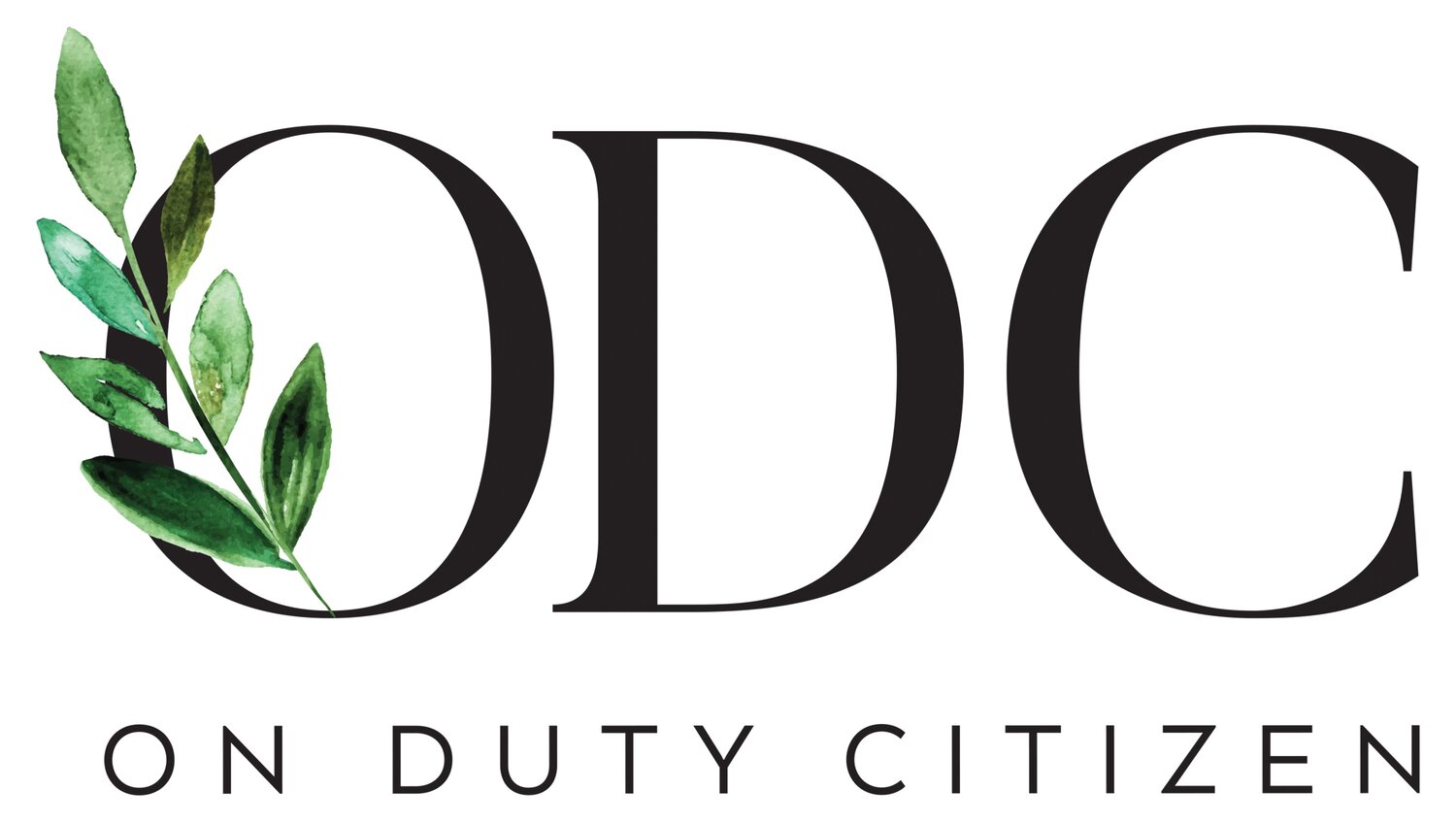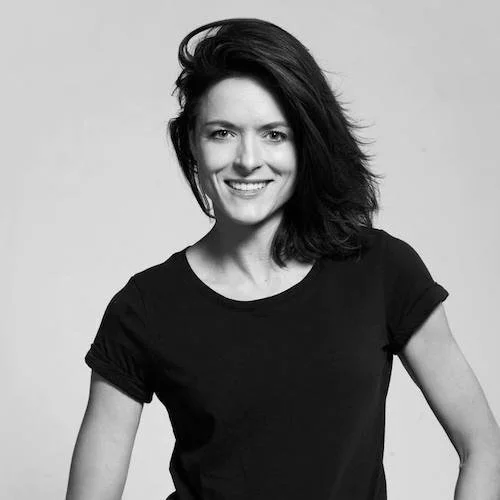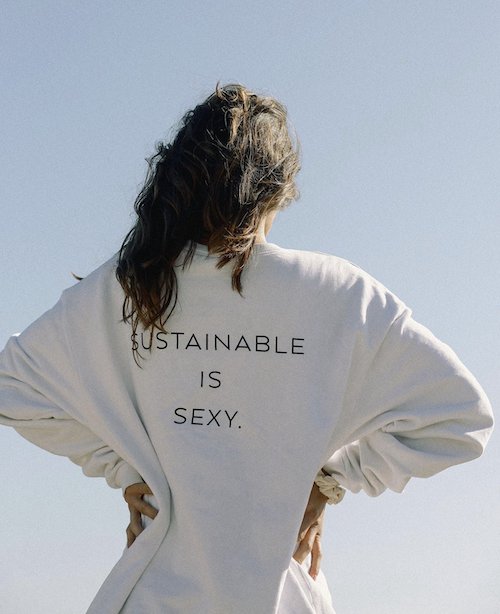ON DUTY CITIZEN
ANIA TAUBENFLIGEL
1) I love hearing about the moment people realized they were passionate about environmentalism. What was this moment like for you?
I always loved nature and the environment since I could walk. My family home was filled with cats, dogs, ferrets, birds, snakes, lizards, bunnies, you name it. But I always thought that everyone loved nature and the environment and it wasn’t until we started our denim business well over 10 years ago now where I learned that there are a lot of people who simply don’t care. The first time we visited our first manufacturer and we saw the harsh realities of people wanting to make money and cutting corners at their facilities causing immense damage to the environment and the people working there too. This is where sustainability became a religion to me. My brothers and I pulled the plug on our denim brand Triarchy and spent over a year re-branding and doing countless hours of research to become completely sustainable and ethically manufactured.
2) Tell us all about the start of Triarchy denim and what it’s like working with family?
Triarchy started as a regularly manufactured denim brand, we were by no means manufacturing numbers like the fast fashion brands. Our numbers were considerably smaller but we were manufacturing like everyone else. In a non-sustainable manner. When we learnt of this as I mentioned above it wasn’t even a conversation, we said we either find a way to do this right. To do this sustainably or we are out of the game. We don’t want to be part of an industry that isn’t doing its part to help save the planet and the people.
3) You guys really stand out to me as a company that cares. You go above and beyond most brands that call themselves sustainable, which is inspiring to say the least. Can you share some of Triarchy’s sustainable and ethical practices and how you’ve worked these into your business model?
The moment we chose to be sustainable it actually made business simpler for us because our decision making was made way easier. If the answer wasn’t sustainable we weren’t doing it. This cut out majority of the manufacturers out there, it cut out all the toxins and chemicals and pesticides it made it easier for us to say NO! If you don’t have sustainable and ethical options for us well then Triarchy will not be working with you. Simple as that. If only all brands would make the pledge it would push all farmers and manufacturers to go organic, sustainable and ethically manufactured. We as brands have the power to put that pressure on.
4) What is one of the “dirtiest” parts of the denim industry and how does Triarchy combat this?
Water waste and pollution. The amount of water that is contaminated, untreated and dumped back into our natural water ways is atrocious. Where this is taking place are countries where farm land and fishing areas usually surround the factories so this water poisons the crops, the water and fish which in turn poisons the people. The worst part is these companies know this is happening and they just keep turning a blind eye. They use hundreds if not thousands of gallons of water to make a pair of blue jeans. We have scaled it down to 1 glass of water per pair of jeans, no chemicals, no pesticides leaving our denim pure as it should be. We are able to accomplish this because of our manufacturer and the state of the art technology they have that uses concepts like lasers and nano-bubbles to eliminate the use of water and sand blasting all together.
5) Can you tell us about some of the materials Triarchy uses and why they’re better for the environment?
We use organic cotton, and dyes that cause no harm to the environment or the people working with our product. One of our newer products uses natural clay to dye the cotton into a beautiful light pink wash. The whole process is so beautiful and natural. Fashion and nature at its finest!
6) What does transparency mean to you and why do you think this is so important?
Transparency is everything in this industry and its our biggest problem. Many brands say they are sustainable or ethically manufactured and they are not. For us at Triarchy every step of our process is vetted through a third party and you can see the whole journey of your jeans. We use Retraced and Green Story to ensure every step of our process is transparent to our consumers. By being transparent with our consumers we educate them and this allows them to make educated decisions when purchasing clothing. Many people out there still don’t know about the harsh realities of the manufacturing processes of the fashion industry. It’s brands like ours that are taking on the challenge of educating consumers and empowering them to make the right decisions and support the right brands who make a difference.
7) What are some tips you have for people looking to implement conscious habits into their daily routine?
I truly believe every little bit makes a difference. It might be idealistic of me but it’s something I will always believe. Everyone is capable of making a difference however small or big that difference is. So if you don’t know where to start, start by supporting local see what your community is lacking around you. Is it something as simple as more recycling bins? Or planting more greenery? There are small steps every person can take to making a difference for the future generations. If we all make these little changes we will leave behind a better world for our children.
8) Tell us a few things you love about living in Toronto and how you connect with your community!
One thing I love about Toronto is although it’s a huge city it does have a strong community vibe. Where I live for example there is a farmers market every week. There are local stores that support the Canadian economy and create what can feel like a small town energy.
9) Do you have any ideas on how we can make environmental movements more inclusive and attainable?
Education. The more people know and understand the more they want to get involved. I often compare the fashion industry to the food industry. We went through a phase where fast food was everything. Then people started asking questions, why is this food so cheap? Where are the ingredients coming from? How are they grown? Soon, there was a food revolution, fast food started getting criticized and the slow food movement began. The same is happening with fashion. Fast fashion took the world by storm and everyone was buying, even I was when it all started. Then the truth started coming out and as time progresses it’s getting harder and harder to turn a blind eye. I hope soon people will boycott fast fashion all together and put the pressure on so these companies change the way they manufacture product.
10) In the climate change movement, who inspires you? Do you have any favorite resources you use to learn more about sustainability?
Absolutely!!! One of my all-time favourite activists are Greta Thunberg (instagram handle @gretathunberg). Another favourite sustainable activist and zero waste activist is Sophia Esperanza (Instagram handle @sophiaesperanza) and regenerative activist Nathalie Kelley (instagram handle @NatKelley). An ocean activist I love is Cristina Mittermeier (instagram handle @mitty). Leah Thomas a lovely climate optimist (instagram handle @greengirlleah). Pattie Gonia is just the most fabulous environmentalist! (Instagram handle @pattiegonia). I could honestly go on and on, I feel so blessed to live in a world of so many environmentalists and animal activists who are making a difference. I hope we all can follow in their footsteps.
Follow Ania along on social media: @aniatriarchy




